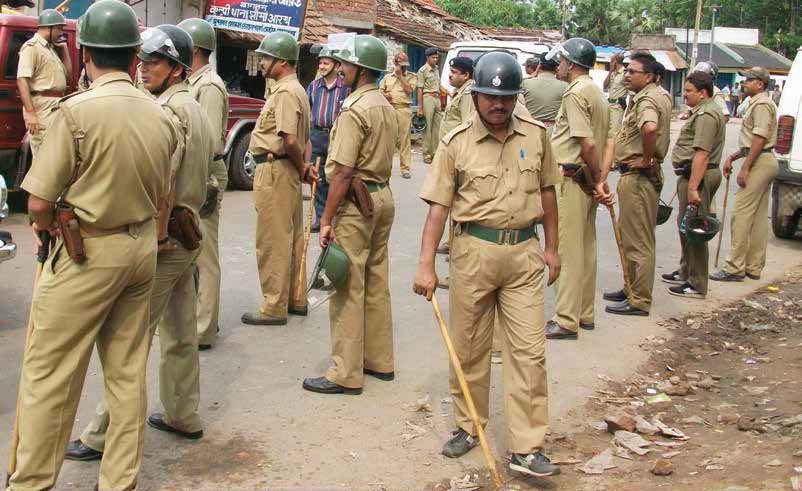This article has been written by Arpita Tripathy, pursuing B.A. LLB (Business Honours) from KIIT School of Law. This is an exhaustive article which deals with the terminology: Autrefois Acquit and Autrefois Convict.
Table of Contents
Introduction
To bring out justice, a trial has to be conducted and for a person to get a proper opportunity to prove his innocence, it is important for a trial to be fair. Article 20 of the Constitution has been the basic block of a fair trial. The concept of autrefois acquit and autrefois convict which are an integral part of a fair trial has also been guaranteed by Article 20 (2) as a fundamental right. The concept is based on basic moral and human values that when a person has been either convicted or acquitted of an offence then he should not be put under the pressure of prosecution for the same offence. This principle can be stated as, “nemo debet bis vexari”.
Autrefois acquit
The French term autrefois acquit means if a person has been acquitted then he will not be subjected to a second trial. For the application of the doctrine, it has to be ensured that the previous trial was a lawful one. Explanation of Section 300 of the Criminal Procedure Code has excluded dismissal of complaint or discharge of accused as a part of acquittal. In Yusofalli Mulla Noorbhoy v. R, the trial led to the acquittal of the accused by a court which was not competent to handle the case. The High Court of Judicature at Bombay said the plea can only be raised when there exists a valid order of acquittal by holding that there exists no double jeopardy if the court is not competent to proceed with the trial of the case.
Illustration: X was charged before the court and acquitted in the matter of the murder of Y. Now provided that, the jurisdiction of the court was correct then A cannot be tried again on the same facts.
Autrefois convict
The plea is usually used as a defence which will stop the entire proceeding. In Yousafalli Mulla Noorbhoy v. R, the court said for autrefois convict to be applied in the case, it has to be shown that the conviction has been passed as a valid order by a court possessing jurisdiction of the matter.
Illustration: A is charged before the court in the matter of theft and was convicted by the court. Later, A cannot be tried on the same facts and the same subject matter.
The doctrines and the Criminal Procedure Code
Section 300 of the Criminal Procedure Code, 1973 puts the doctrines into words and explains it in detail. The basic rule which has been stated in section 300 (1) is that a person who has been tried by a Court of ‘competent jurisdiction’ and has been convicted or acquitted of an offence and such conviction or acquittal is still in force then the person is not liable to be tried again for the same offence.
‘Court of Competent Jurisdiction’ – If a court does not have jurisdiction to try the case then such trial is void ab initio and therefore, such trial is not forbidden under the section. It is not enough to just have competent jurisdiction but the court trying the case should believe that it has jurisdiction of the case. If a court erroneously believes that it does not have the jurisdiction but proceeds with the case even then a person who was subject to such trial can be re-tried by a court of competent jurisdiction.
‘Trial’ – The scope of the word trial includes the situation where the court has taken cognizance of the offence and the accused has been asked to appear, the court has taken some steps towards trial and what it has done is proceedings in the nature of the trial.
‘Acquittal’ – If a person is acquitted not on the basis of merit even then such an acquittal can be a bar for a second trial under Section 300 of Criminal Procedure Code. Under Section 256 of Criminal Procedure Code, if the summons has been issued to the accused, and on the day of the hearing, the complainant does not appear then the Magistrate has the power to acquit the accused. Such an acquittal under Section 256 can also be a constraint for a second trial. Even though an accused is acquitted because of withdrawal of the public prosecutor under Section 321 of the Criminal Procedure Code such an acquittal is also a bar under section 300 for a subsequent second trial. If an accused is acquitted under Section 257 of the Criminal Procedure Code because the complainant has withdrawn his complaint even then such an acquittal in the previous trial is a bar for re-trial of an accused.
Under the explanation of section 300, acquittal excludes dismissal of complaint or discharge of the accused.
If any offence is not the same offence as was in the first trial, but the facts of the case are the same for any other offence for which a different charge from one made against the accused person, under Section 221 (1) then it will work as a bar to the second trial.
Section 300 (2) is a kind of protection against the misuse of the law. A person if acquitted or convicted of any distinct offence and a separate charge sheet has been made then re-trial can be done against the person. However, this might lead to gross injustice and for protection from such injustice, Section 300 (2) mandates that the consent from the State Government has to be taken. The protection under Section 300 (2) is wholesome in the sense that the State Government has to carefully examine the facts and circumstances of the case and would provide consent in the interest of justice.
Under Section 300 (3) of the Criminal Procedure Code, for an offence to be eligible for a subsequent trial, it is necessary to show that there are newly presented facts which were not known to the court during the first trial or the consequences had not happened and such new facts indicate a new kind of offence different from the earlier one.
Illustration: K and L were involved in a fight which due to which L got injured, K was tried for it but after the trial, L died. Here, the subsequent trial will be valid and won’t be considered as a restriction under Section 300.
In the above illustration, a consequence developed after the conclusion of the first trial. Here, because of the development of new facts the bar on subsequent trials is pulled out.
Section 300 (4) allows subsequent trial in cases where the person who has been acquitted or convicted by the court was subsequently charged with another offence which the court in the first trial was not competent to handle.
In the explanation of Section 300, it has been clearly mentioned that a person who has been discharged can be re-tried in a second court. However, Section 300 (5) is an exception to the explanation. If a person has been discharged with sufficient reasons by Magistrate of First Class or with the previous approval of Judicial Magistrate in any summons case without pronouncement of any judgment then such a discharge would be considered as a bar for subsequent trial under Section 300 (5) of Criminal procedure Code.
Even the principle of autrefois acquit takes into account the cases of discharge so that the goal of justice can be effectively achieved.
Under Section 26 of the General Clauses Act, if an act is an offence under two different Acts (enactment) then the person accused will be tried and will be liable for sanction under any one of those enactments. However, it has to be ascertained that the offences are the same, but if they are different then the bar over subsequent trial can not be put.
Principle of issue – estoppel and the doctrines
This principle is a special principle of Law of Evidence which is also called res judicata. This principle is completely different from the terms autrefois convict and autrefois acquit under Section 300 of the Criminal Procedure Code. In autrefois convict and autrefois acquit the subsequent trial of a case is barred. However, the principle of issue- estoppel does not stop a subsequent trial but this principle states that if a finding has already been established then the new findings will not be admissible which are aimed towards overturning of findings found in the previous trial. The doctrines are always in respect to the second trial but the principle of the issue- estoppel can also be applied to different stages of the same trial.
Double jeopardy and the doctrines
The doctrine of double jeopardy takes into its scope the principle of autrefois convict only, that is if a person has been convicted of an act or omission in a previous trial then he cannot be tried in a subsequent proceeding with the same facts. The doctrine of double jeopardy is narrower than the principles stated under Section 300 of the Criminal Procedure Code because it takes into account both autrefois convict and autrefois acquit.
Landmark judgments
Maqbool Hussain v. State of Bombay is a landmark case which explained the terms Autrefois Convict and Autrefois Acquit and its roots efficiently. In this case, a man who was a citizen of Bharat, arrived at Santa Cruz Airport. He was in possession of a huge amount of gold (107.2 tolas). The gold was confiscated by Customs Authority under the Sea Customs Act, 1878. He was given the option to pay Rs. 12,000 within 4 months and redeem the gold. However, no one came to take back the gold. In the court of Chief Presidency Magistrate of Bombay, a complaint was filed against him under Foreign Exchange Regulation Act. The appellant contended by using the shield of Article 20(2). He said that his fundamental right guaranteed under Article 20 (2) has been violated because there have been two trials on the same subject matter. However, the court held that, for Article 20 (2) to be violated, it is important that the previous trial was tried by the Court. However, in this case, the confiscation was conducted by Customs Authority which is an administrative body and not a judicial tribunal.
Jagjit v. State of Punjab this case is similar to the case of Maqbool Hussain. Here, there were 3 detenus who were detained under the Preventive Detention Act in the Central Jail, Ferozabad. The three dentenus committed a general assault on jail authorities and as a result of which disciplinary action was taken against them and they were all removed to cells. After this, the detenus started a hunger strike. When the hunger strike did not end, the Jail Superintendent filed a complaint against them under Punjab Communist Detenue Rules. Jagjit Singh made a contention that his fundamental right guaranteed under Article 20 (2) is being hampered. However, the court dismissed the contention and held that the steps taken by the jail authority were not judicial in nature, the jail authority is not a judicial tribunal.
In Purananda Das Gupta v. Emperor, the case was first tried in the Special Tribunal of Faridapore. The case was taken for a subsequent trial where the Court said that the Special Court has no jurisdiction over the matter of Section 121 A of Indian Penal Code and therefore the principle of autrefois acquit or autrefois convict cannot be applied. It was firmly stated by the court that when a case is presented before a subsequent court then it has to look if the Court of the first trial had the jurisdiction to proceed with the case.
Conclusion
Autrefois acquit and Autrefois Convict are the two most important and basic doctrines for a trial to be fair. The doctrines have been guaranteed as a fundamental right under Article 20 (2) of the Indian Constitution. It has been reiterated by the Courts that a person should not be harassed for an offence twice and has enumerated under Section 300 of Criminal Procedure Code. The Courts have provided clarity over Section 300 by interpreting the various ambiguous terms. However, it is also necessary to mention that sometimes, just because there was an error on the part of the Court to determine jurisdiction, it becomes a disadvantage for an accused and he can be subject to a second trial.
References
- PSA Pillai’s Criminal Law, Eleventh Edition 2012
- KD Gaur: Criminal Law- Cases and Materials, Ninth Edition
- Rahul Deo, Academike, Autrefois Acquit and Autrefois Convict, https://www.lawctopus.com/academike/autrefois-acquit-autrefois-convict/
- Sejal Makkad, Law Times Journal, What does Autrefois Acquit and Autrefois Convict mean?http://lawtimesjournal.in/what-does-autrefois-acquit-and-autrefois-convict-mean/#:~:text=Autrefois%20acquit%20and%20autrefois%20convict%20are%20French%20terms.&text=Accordingly%2C%20autrefois%20acquit%20and%20convict,twice%20for%20the%20same%20offence
LawSikho has created a telegram group for exchanging legal knowledge, referrals and various opportunities. You can click on this link and join:
 Serato DJ Crack 2025Serato DJ PRO Crack
Serato DJ Crack 2025Serato DJ PRO Crack











 Allow notifications
Allow notifications


